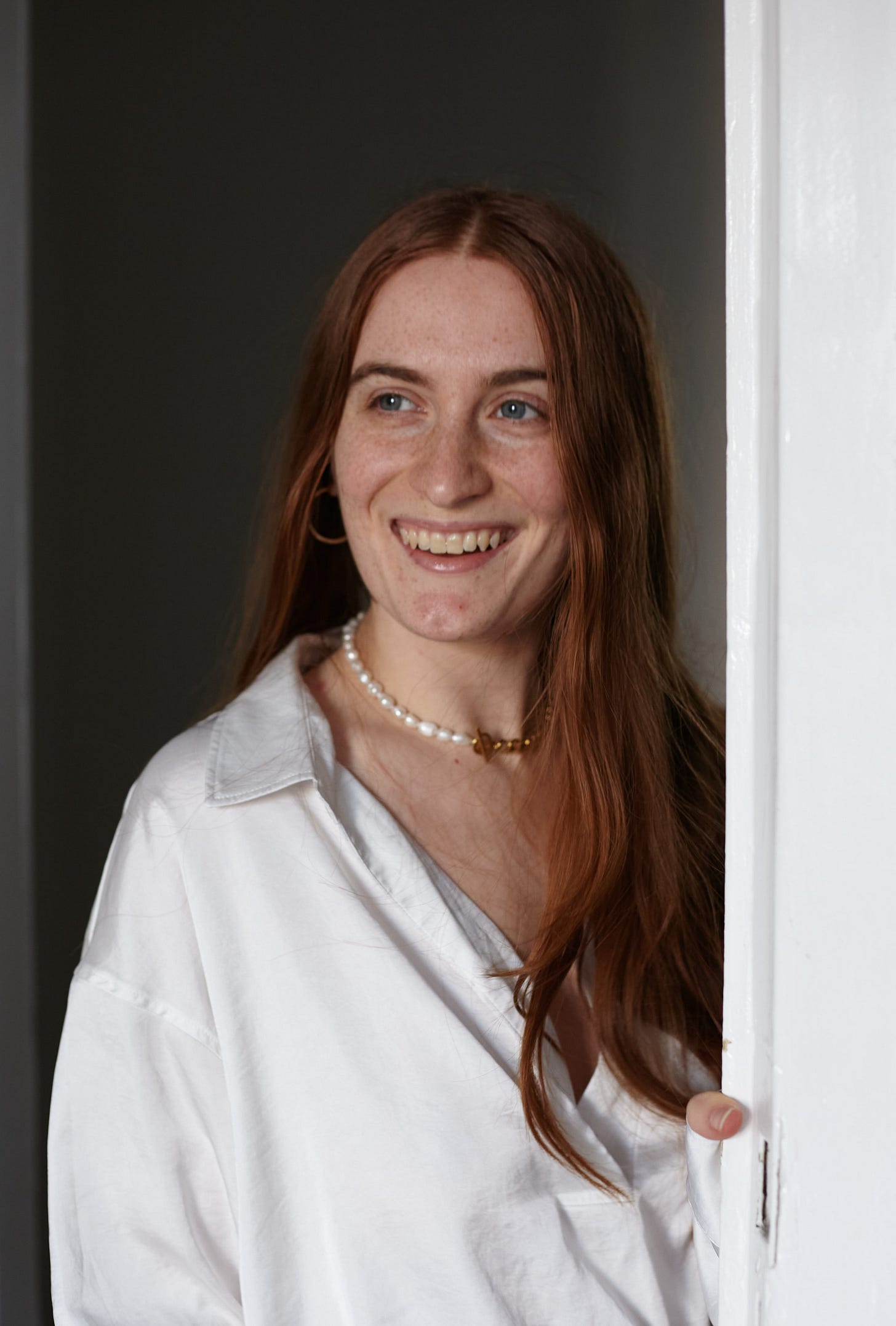People Are Always Confessing Their Secrets
Uncovering Hidden Truths: Carl Jung's Work and How People Often Unconsciously Share Their Deepest Personal Truths Mistaking them for Universal Truths
Have you ever noticed someone react strangely to something you’ve said - maybe a twinge of discomfort, a sudden change in tone, or an awkward laugh?
These moments can catch us off guard, but they often point to something deeper. Words have the power to resonate in ways beyond their surface meaning, striking chords in the nervous system of the person who receives them - revealing emotions or memories which can bleed into a perfectly normal and neutral conversation.
I recently returned to The Essential Jung: Selected Writings Introduced by Anthony Storr. This was the very first of Carl Jung’s books I read around seven years ago. Since becoming a certified practitioner in holistic emotional wellness, I felt called to revisit Jung’s work. I wanted to explore this book again with fresh eyes - annotating it to the hilt.
In the chapter which touches on Jung’s early works he discusses his work with word association tests. Within his classic test Jung would repeat around 100 universally well-known words. Asking participants to respond with the first word that came to their mind, as quickly as possible. He used a stopwatch to record the timing of each response, noted the specific word given, and observed any visible signs of disturbance in the person being tested. By repeating the entire test multiple times, Jung aimed to deepen his exploration into the subtle, unconscious responses triggered by these seemingly simple words.
From the findings gathered through these tests, Jung was able to uncover emotional patterns and, most intriguingly, the aspects of themselves that participants wished to conceal. He often used these tests with criminals, aiming to elicit confessions indirectly - and it worked. The seemingly neutral process of associating words revealed hidden truths, exposing the unconscious layered dynamics that shaped their thoughts and behaviours. Because of course, a lack of a response was just as incriminating as any response that they could have given.
Unconscious confessions
One striking example Jung shares in the book reveals just how profound these tests were in uncovering hidden truths. During one such test, Jung discovered that the participant had been involved in a drunken altercation, where he had stabbed another person with a knife - a crime that led to a year in prison. Despite the man’s belief that he had buried this shameful memory, it was revealed through the word association test. Words like 'knife,' 'pointed,' and 'bottle' caused significant delays in his responses, accompanied by subtle signs of discomfort. These reactions, seemingly minor at first glance, spoke volumes about a deeply suppressed event—an event the participant thought was well concealed.
While I was reading this my mind was alerted to the many times that I’ve found myself in situations where I unintentionally uncover hidden truths, much like Jung did - not with criminals - but with people in my everyday life. Since becoming a practitioner who handles emotions of many different clients day to day, understanding that words hold different weight for different people. I have become highly a-tuned to the confessions people make outside of the therapeutic space, without realising they are confessing anything.
This became particularly clear when I would be having conversations with friends and say something which I felt was reasonably neutral - and a friend would get defensive and ask me to explain my word choice. My response was often:
“What I said was not objectively offensive, I was just expressing myself”
A good example of this happened with a friend who would visibly react whenever I mentioned my desire for wealth in this lifetime. They’d quickly interrupt to remind me how equally valid and important the working class are. While their intentions were likely well-meaning, it felt tone-deaf, especially considering I grew up in one of the most impoverished areas of Scotland. Isn't it possible for the working class to dream of more for themselves, just as anyone else can? Why can't we all hold space for our individual dreams while also working towards a better collective future?
Does me sharing a vision that feels warm in my chest become something shameful to someone entrenched in their own dogma—or perhaps, deep financial struggles that are more about their personal emotional blocks than a reality I need to be 'educated' on?
So, words such as wealth, money, and holidays - neutral and broad topics for many people - would all result in our conversations heading south.
What does this tell me?
It tells me that this person was deeply uncomfortable about what it means to have, use, and cultivate money. This person has built a beautiful life for themselves, and yet, within their own limitations, there are areas of life that are quite neutral and open to me (after lots of EFT Tapping about money!) that are a no-go for them. Those topics would put them in a bad mood and make me regret bringing the topic up, even though it’s worth noting that this person was raised with a huge amount of wealth.
This person was repeatedly defending the working class to me - the actual so called working class within this dynamic - while completely missing the fact that I was living in that very reality, having grown up in one of the most impoverished areas of Scotland and against the odds, built a life for myself which has outlived the expectations most people would put on the resilient and resourceful people labeled the ‘working class’ by people who see themselves as ‘not that’.
This brings me back to Jung’s word association tests, where even a seemingly neutral word can trigger unconscious reactions, just like my friend’s defensiveness whenever I mentioned wealth. Jung’s tests highlighted how people inadvertently "tell on themselves," exposing insecurities, emotional conflicts, and unresolved issues through their reactions, even if they aren’t aware of it. These seemingly innocent responses carry deeper truths about the individual, much like how my friend’s defensiveness was less about me and more about their own unaddressed feelings around money and wealth.
Universal Truth or Unconscious Projection?
Becoming an EFT practitioner within the world of emotional wellness has shown me just how much people’s reactions reveal about their inner world. In my work with clients, I’ve seen that the things people resist or react to most are often the very areas where they hold unresolved emotional blocks. Just as Jung discovered through his tests, we are constantly telling stories about ourselves, but often without realising it. These stories that we tell are not always as objective as we think, yet we present them as such - making them feel like universal truths when they’re actually deeply personal, unconscious narratives.
How does EFT Tapping come into it?
It’s important to mention that through the self-acceptance that EFT Tapping offers, we can move beyond shame and develop a deeper understanding of our inner world. With courageous self-acceptance and the willingness to engage with our unconscious mind, we can begin to interact with others more openly, free from unconscious projections. Conversations, like the one with my friend, become opportunities to look beyond the surface and see the stories we each carry. When we start paying attention, we can begin to recognise the unconscious limitations others live within - often without even realising it - and, in doing so, approach each interaction with more compassion and understanding, while also honouring our own limits and boundaries.
What do I do?
I’m an EFT Tapping Practitioner (Emotional Freedom Techniques). It’s my life’s work to help others get clear on the essence of who they are and what feels authentic for them. My goal is to support people in creating lives filled with emotional fulfilment, purpose, and joy.
If this resonates with you, you can find out more about my work or reach out through my website: claire-farrell.com
It's my honour to hold space as we explore the beliefs and barriers holding you back—making room for your most authentic self to thrive.
You can also find helpful Tapping videos and fun updates on my Tiktok: @clairefarrell__
Lots of love,
Claire







Excellent explanation!